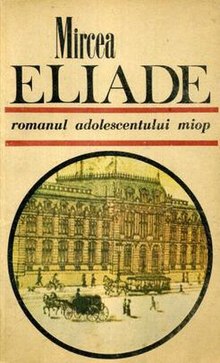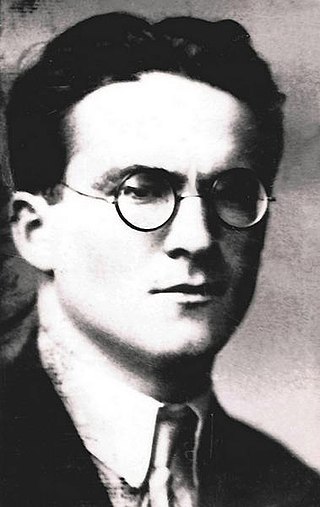
Mircea Eliade was a Romanian historian of religion, fiction writer, philosopher, and professor at the University of Chicago. One of the most influential scholars of religion of the 20th century and interpreter of religious experience, he established paradigms in religious studies that persist to this day. His theory that hierophanies form the basis of religion, splitting the human experience of reality into sacred and profane space and time, has proved influential. One of his most instrumental contributions to religious studies was his theory of eternal return, which holds that myths and rituals do not simply commemorate hierophanies, but actually participate in them.

The Forbidden Forest is a 1955 novel by the Romanian writer Mircea Eliade. The story takes place between 1936 and 1948 in Bucharest and several other European cities, and follows a Romanian man who is on a spiritual quest while being torn between two women. The book was written between the years 1949 and 1954. It contains several elements and themes which also appear in the author's scholarly work, such as initiation rites and the division between sacred and profane time.
Romanian literature is the entirety of literature written by Romanian authors, although the term may also be used to refer to all literature written in the Romanian language or by any authors native to Romania.

Ioan Petru Culianu or Couliano was a Romanian historian of religion, culture, and ideas, a philosopher and political essayist, and a short story writer. He served as professor of the history of religions at the University of Chicago from 1988 to his death, and had previously taught the history of Romanian culture at the University of Groningen.

Mihail Sebastian was a Romanian playwright, essayist, journalist and novelist.
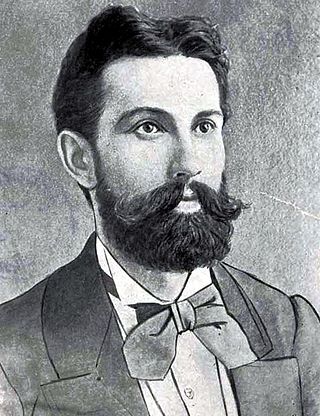
Nicolae Densușianu was a Romanian ethnologist and collector of Romanian folklore. He was a corresponding member of the Romanian Academy, with a specialty in history. His main work, for which he is chiefly remembered, was the posthumously printed Dacia Preistorică (1913), with a preface contributed by C. I. Istrati; a facsimile edition was published in 2002 by Editura Arhetip, Bucharest. In Dacia Preistorică Densușianu combined the studies of folklore and comparative religion with archaeology to construct a theory about the Prehistoric cultures of Dacia. The work has drawn criticism for unprofessionalism and evidence of nationalism, and for standing at the source of Dacianism. Mainstream scholars regarded his book as fanciful and unscientific.

Mircea Cărtărescu is a Romanian novelist, poet, short-story writer, literary critic, and essayist.

Doina Ruști is a Romanian writer and novelist.
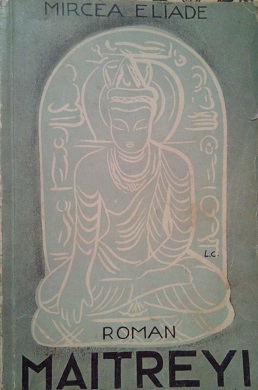
La Nuit Bengali is a 1933 Romanian novel written by the author and philosopher Mircea Eliade.

Haig Acterian was a Romanian film and theater director, critic, dramatist, poet, journalist, and fascist political activist. Alongside Mihail Sebastian and Camil Petrescu, he is considered one of the major Romanian theater chroniclers in the interwar period.
This is a bibliography of works by Mircea Eliade.

Na Hanyate is a novel written in 1974 in Bengali by Maitreyi Devi, an Indian poet and novelist who was the protégée of the great Bengali poet Rabindranath Tagore. The writer received Sahitya Akademi Award for this novel in 1976. She wrote the novel in response to Romanian philosopher Mircea Eliade's book La Nuit Bengali, which related a fictionalized account of their romance during Eliade's visit to India.
Ognjen Spahić, is a Montenegrin novelist. Spahić has published two collections of short stories: Sve to and Zimska potraga. His novel Hansenova djeca won him the 2005 Meša Selimović Prize for the best new novel from Croatia, Serbia, Montenegro and Bosnia-Herzegovina. To date, Hansenova djeca has been published in French, Italian, Slovenian, Romanian, Hungarian, Macedonian and English by the UK publisher Istros Books

Goran Vojnović is a Slovenian writer, screenwriter and film director. He is best known for his 2008 novel Southern Scum Go Home which won him numerous awards as well as a lawsuit filed by the Slovenian Police that was withdrawn a day later after media attention and public outrage at police filing charges for a work of fiction brought embarrassment to the Slovenian Ministry of Interior.

Shamanism: Archaic Techniques of Ecstasy is a historical study of the different forms of shamanism around the world written by the Romanian historian of religion Mircea Eliade. It was first published in France by Librarie Payot under the French title of Le Chamanisme et les techniques archaïques de l'extase in 1951. The book was subsequently translated into English by Willard R. Trask and published by Princeton University Press in 1964.
Faruk Šehić is a Bosnian poet, novelist and short story writer. He was born in Bihać and grew up in Bosanska Krupa. He studied veterinary medicine in Zagreb until the outbreak of the Bosnian war in which he was an active combatant. After the war, he turned to literature. His first book was a collection of poems Pjesme u nastajanju. His short story collection Pod pritiskom was published in 2004 and won the Zoro Verlag Prize. The English translation of Under Pressure was published in May 2019 by Istros Books. His debut novel Knjiga o Uni, was translated into English in 2016 by Istros Books and into Italian in 2017 by E. Mujčić for Mimesis, and also into Romanian, Bulgarian, Turkish, Spanish, Macedonian, Arabic, Dutch, Polish, Slovenian and Hungarian language. Quiet Flows the Una won the Meša Selimović prize for the best novel published in the former Yugoslavia in 2011, and the EU Prize for Literature in 2013. His most recent poetry book is a collection of poetry entitled ‘My Rivers’ for whom he received Risto Ratković Award for the best poetry book in Serbia, Bosnia and Herzegovina, Montenegro and Croatia in 2014, and Annual award from Association of Writers of Bosnia and Herzegovina. He also received XXXI Premio Letterario Camaiore Francesco Belluomini for selected poems "Ritorno alla natura" as a youngest laureate so far. In 2018, he published short stories collection "Clockwork Stories". Šehić lives in Sarajevo, where he works as a columnist and journalist. He is a member of the Writers’ Association and the PEN Centre of Bosnia and Herzegovina. His books have been translated into 15 languages and published in 19 countries. In 2017, Šehić has signed the Declaration on the Common Language of the Croats, Serbs, Bosniaks and Montenegrins.
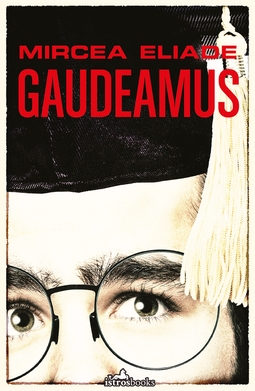
Gaudeamus is a novel written in 1928 by the Romanian writer Mircea Eliade, portraying him at college during the Interbellum. It was only published as a single volume in 1989. It is the sequel to Diary of a Short-Sighted Adolescent, which is based on Eliade's time in high school.
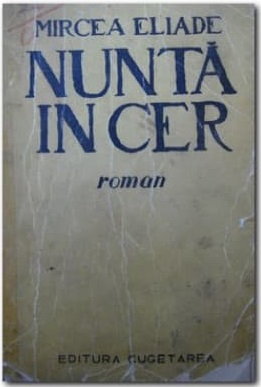
Marriage in Heaven is a 1938 novel by the Romanian writer Mircea Eliade. It consists of the correspondence between two unhappy men: one whose lover wanted children while he did not, and one who was abandoned by a woman who did not want children while he did. The plot has autobiographical elements from Eliade's relationship with his wife Nina.
Istros books is a London-based independent publisher of writers from South-East Europe and the Balkans, in English translation. It was set up in 2011 by Susan Curtis.
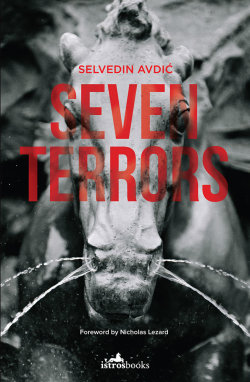
Seven Terrors is a science fiction novel by Selvedin Avdić. Originally published in 2010 in Bosnian, it was translated into English by Coral Petkovich published in the UK by Istros Books in 2012.
